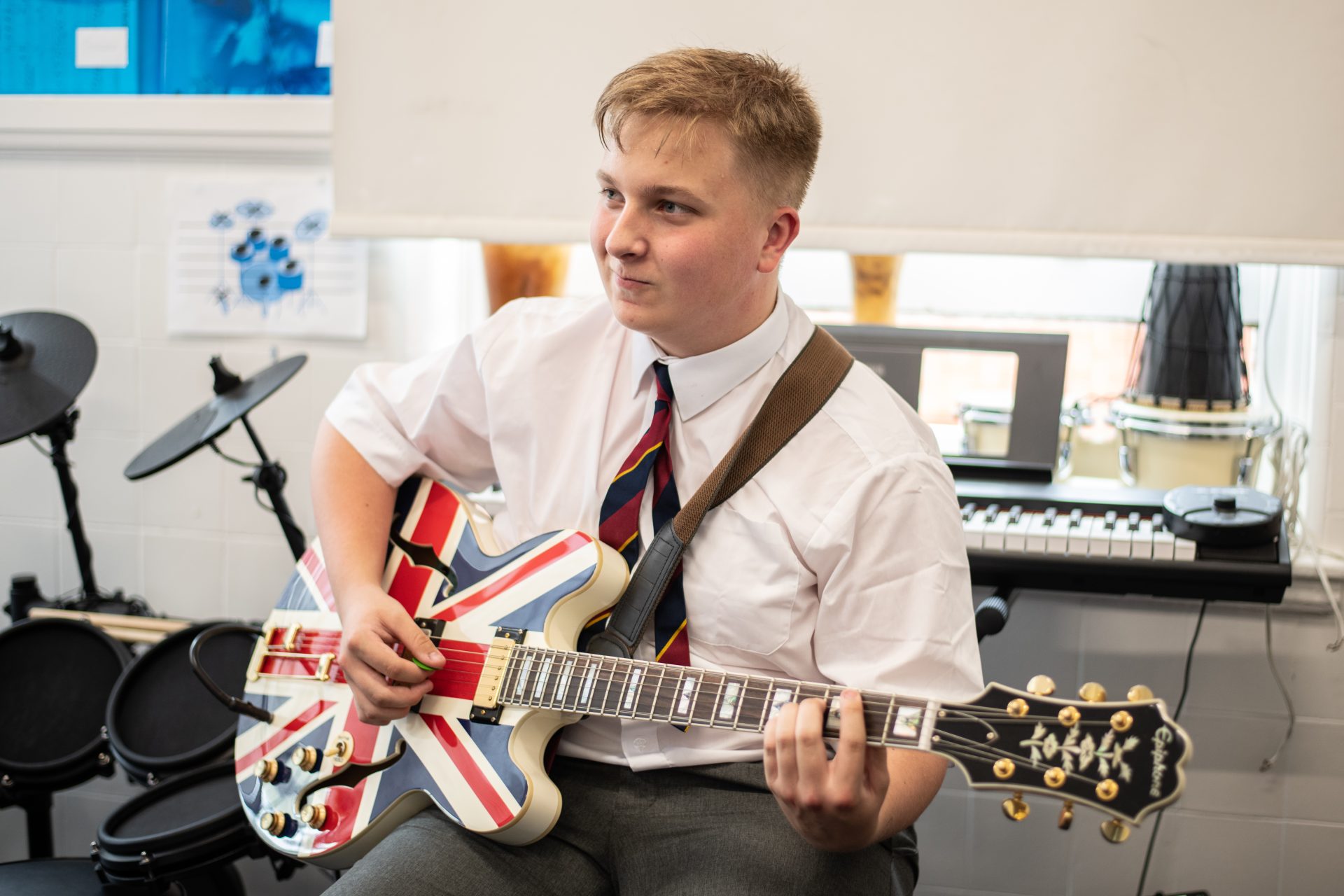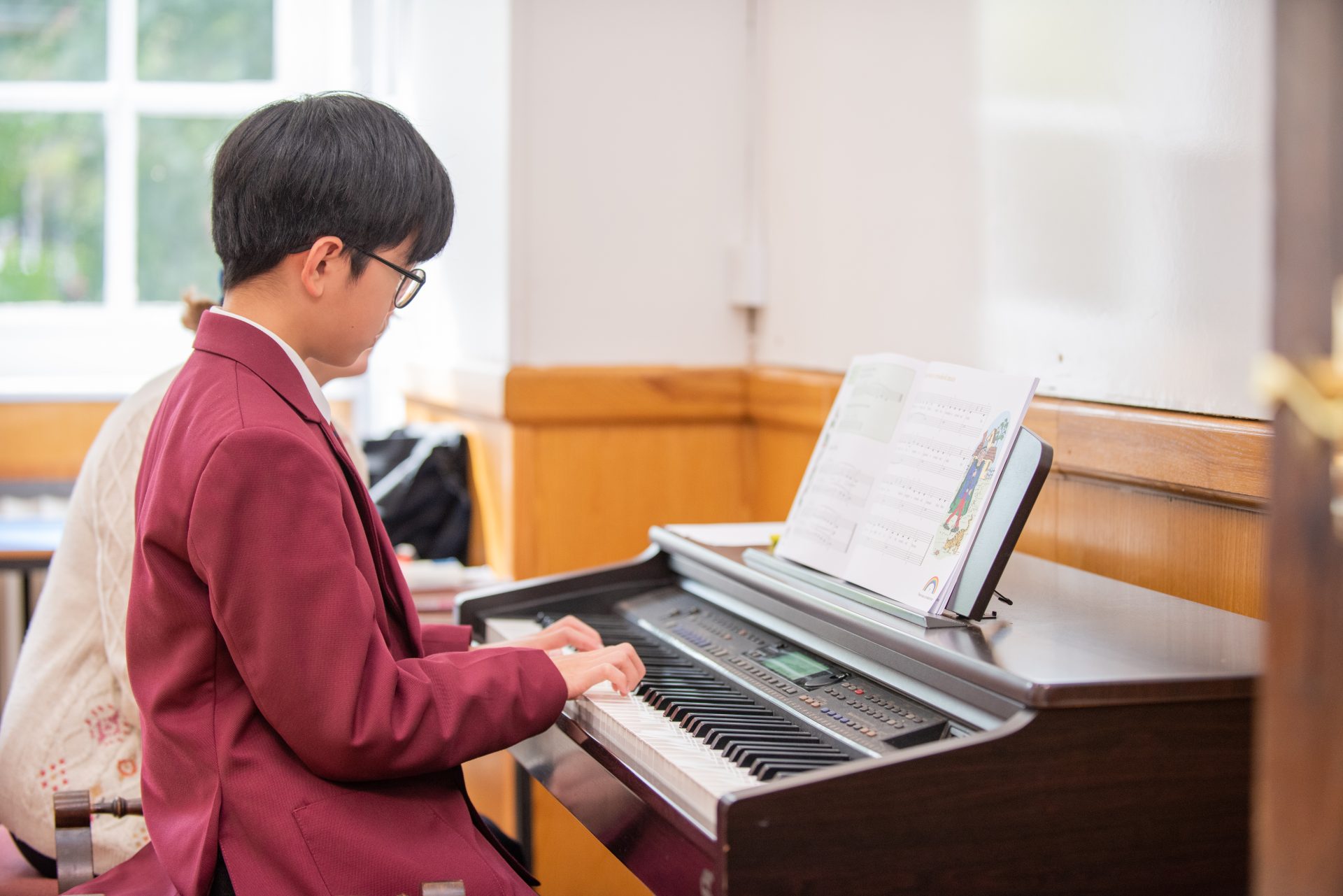Music
Key Stage 3
At Hulme Hall Grammar School, students will have the opportunity to understand the ways that music has shaped the cultural world in which we live. They will experience a rigorously academic and creative curriculum where they engage with a range of musical styles and activities to broaden their thinking.
Our intent is to nurture and guide students to become creative, well-rounded individuals who are imaginative, disciplined, inquisitive, collaborative and persistent who think, speak and act like musicians.
Year 7
- The Musical Elements
- Four Chord Songs
- Musical Theatre
- The Orchestra
- Fusions -Classical Music Remix
Year 8
- Blues and Jazz
- Hip-Hop and Rap
- Piano Skills
- Film, TV and Video Game Music
Year 9
- Rock and Pop School: Solo Music Performance Skills
- Rock and Pop School: Developing as a Musical Ensemble
- Songwriting
- Music for Adverts – Composing to a Brief
- Radio Station Project / Live Lounge
Pupils will complete a baseline assessment at the beginning of each year and then receive both a formative assessment at the beginning and summative assessment at the end of each module to measure their progress.
Pupils do not receive homework in Music at Key Stage 3.
KS3 Assessment Grid



Key Stage 4
GCSE Music
AQA Music (8271)
This new GCSE Music specification inspiring, interesting and practical to teach.
The new music qualification will motivate and stretch students of all abilities, equipping them with the skills and experience to succeed at GCSE and go on to further study.
Music technology is fully integrated, and many areas of study have artists or composers who have written works in this format. Students can perform and compose using technology.
This specification appreciates all styles and genres, skills and instruments, catering for different learning styles and musical tastes.
- Component 1: Understanding Music Assessment – Listening Examination (40%)
- Component 2: Performing Assessment – External Moderation (30%)
- Component 3: Composing Assessment – External Moderation (30%)
Pupils will receive weekly homework consisting of exam-style questions related to content studied that week. They will also be assessed on their comprehension every half term in exam conditions and receive a grade per module.
Further Study
The Music GCSE offers a wide range of experiences of performing, composing and listening. There are many courses, post GCSE, which allow you to specialise in any of these areas.
A Music GSCE could lead to working with Music Technology, professional performing, a composing job, work in a recording studio, music therapy and teaching.
